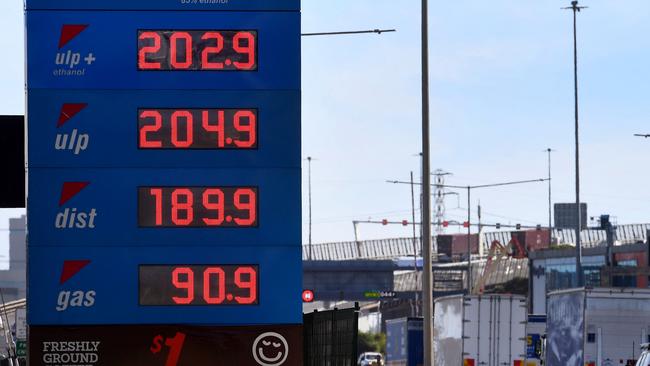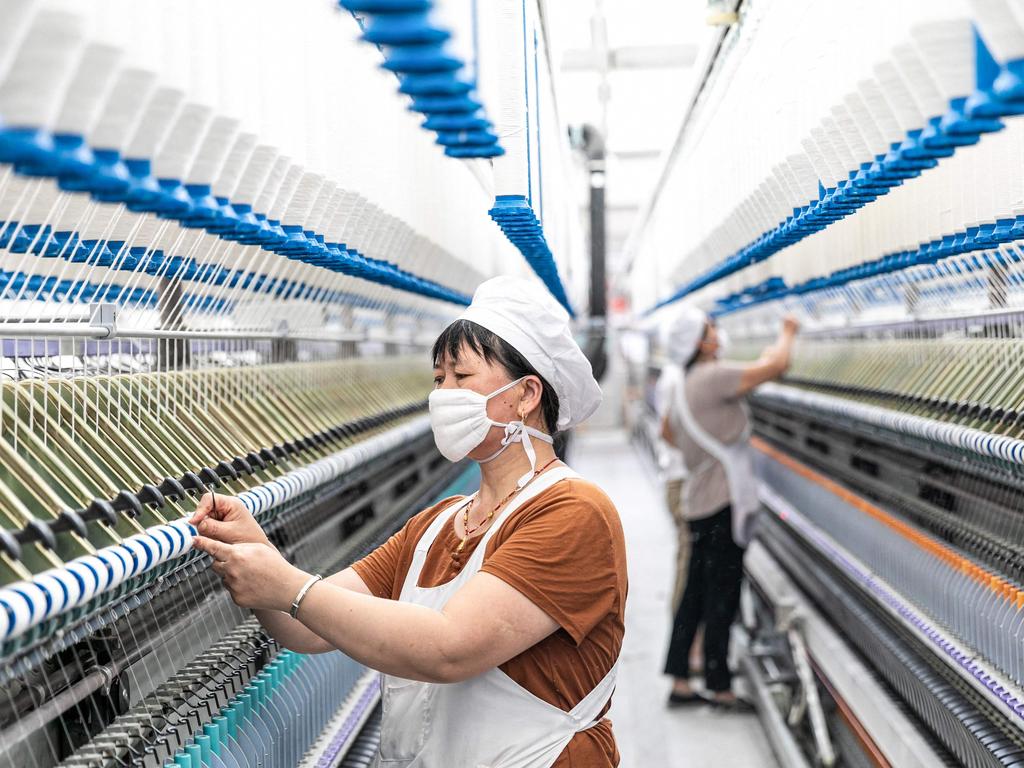Ukraine war to drag down global economy
The global economy is confronting the ugly prospect of higher inflation alongside slower growth flowing from the war in Ukraine.

Business
Don't miss out on the headlines from Business. Followed categories will be added to My News.
The global economy is confronting the ugly prospect of higher inflation alongside slower growth flowing from the war in Ukraine, according to leading economists.
But Australia should escape the worst of the fallout as demand for key commodities strengthens, they say.
“Much depends on how long the war lasts and how it ends. But if it lasts for a quarter or more, then the effects on the global economy will be an unpleasant combination of higher inflation and lower growth,” independent economist Saul Eslake told The Australian.
“The thing that worries central bankers is the extent to which higher prices feeds through into inflation expectations, thus potentially generating an inflationary cycle.”
While the conflict could now see central banks in the US and Europe tap the brakes on rates, the rate outlook is more uncertain for Australia, with higher commodity prices potentially deliver a faster pace of hikes in the coming months.
The global stagflation warning comes after the International Monetary Fund cautioned on the fragility of the world economy as the war sends commodity prices soaring.
“While the situation remains highly fluid and the outlook is subject to extraordinary uncertainty, the economic consequences are already very serious. Energy and commodity prices – including wheat and other grains – have surged, adding to inflationary pressures from supply chain disruptions and the rebound from the Covid-19 pandemic,” the IMF said on Saturday.
Price shocks would have an impact worldwide, with the potential economic impact to be “all the more devastating” if the conflict escalated, the global lender warned.
“This crisis will create complex policy trade-offs, further complicating the policy landscape as the world economy recovers from the pandemic crisis.”
Europe will bear the brunt of the stagflationary hit, AMP chief economist Shane Oliver warned.
“But there is a bit of an impact elsewhere. If you take oil on its own, it will add to inflation, so by definition, there must be a hit to household spending power, whether it’s in the US, Europe or Australia.
“The heat is much greater in Europe because it’s more dependent on gas imports and there’s a greater confidence impact because of their proximity to Russia and Ukraine.”
Australia will see inflationary pressures from food prices as well as oil, Mr Eslake said.
“To an extent there will be (inflationary pressures) in food because the probability is that the prices of things like wheat, canola and corn and so forth will be affected by the conflict since Ukraine and Russia are such big exporters,” he said.
Higher energy prices would have flow-on effects across the economy, he flagged.
“Anything that gets transported is liable to have higher prices because of rising oil prices. So putting things in trucks, or on ships, all that sort of stuff will see flowthrough effects. The same goes for plastics and other things derived from petroleum products.”
The oil price rocketed 7 per cent on Friday to more than $US115 a barrel, while natural gas, coal and wheat prices also surged and Asian LNG prices hit a record over supply concerns. At the petrol bowser, meanwhile, some drivers are paying more than $2 a litre.
Higher prices for coal, LNG and grain would be a positive for the Australian economy, Mr Eslake predicted.
“Higher energy prices are a negative for most advanced economies because most advanced economies are net importers of both energy and food. In Australia, while we are certainly a net importer of oil, we’re a net exporter of other energy products and we’re a net exporter of food,” he said. “It’s obviously bad for households but good for the overall economy … we will be less affected (by the war) than many others. The impact of higher food and energy prices on us is more ambiguous.”
The more positive outlook for the local economy had been reflected in the recent sharemarket outperformance, Dr Oliver said.
“It’s perverse in a way. Normally when there’s a crisis the Australian dollar collapses and our sharemarket goes down more than most. But so far our sharemarket is down about 7 per cent from its high, US shares are down 9 per cent, Japan is down 15 per cent and Europe has fallen as much as 19 per cent.
“So we haven’t fared as badly, and that’s because while Australian motorists will get whacked with higher petrol prices, the economy as a whole will benefit from higher resources prices.”
The darkening global outlook comes as policymakers navigate an already-fragile recovery from the Covid-19 pandemic, with the path for higher rates suddenly more uncertain.
CommSec chief economist Craig James said central banks faced a difficult balancing act in the months ahead.
He is still tipping the US Federal Reserve will hike rates by 25 basis points this month but added that the pace of the central bank’s rate rises will be slower.
The Reserve Bank appeared in no rush to lift rates, he said: “The Reserve Bank wants to see higher growth of wages before it starts to think about raising interest rates.”
But AMP’s Dr Oliver sees the RBA potentially hiking in June to ward off the inflationary pressures.
“The complication for Australia is that the short-term impact on confidence and the surge in oil prices, which may drag on consumer spending, but the net effect nationally will actually be a boost to growth via higher export earnings.
“So while we were expecting a rate hike in August, the scenario now looks like the lift will be in June.”
Dr Oliver also predicted the Australian dollar, now about US74c, would rise to US80c.
Tribeca Investment Partners’ Ben Cleary is tipping the local currency will push even higher, to $US1.
Originally published as Ukraine war to drag down global economy





